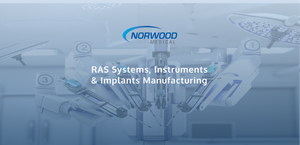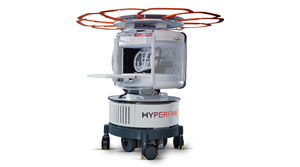Right now we’re in the middle of the Artificial Intelligence Renaissance for medtech. But what does this mean for companies? Is this a fad or is AI here to stay in medtech. MD+DI Managing Editor Omar Ford gives his thoughts on this emerging trend.
November 21, 2018

When I joined MD+DI nearly a year ago, I would hear smatterings about artificial intelligence and machine learning in medtech. But then something happened. By mid-February every other pitch I started receiving was AI-related.
Conferences started delving into the AI topic. I even participated in a webinar hosted by Dave Saunders, CTO and Co-founder of Galen Robotics. It was clear to me that AI wasn’t just a buzzword, or some fancy marketing scribble used to catch a journalist’s attention.
AI is something more than a trend. It’s going to be interwoven into the very fabric of medtech. These sometimes software-like solutions will only serve to enhance established and sometimes new devices. But how? Is this just pie in the sky that I’m talking about or is there some sort of tangible example?
Let’s look at the case of Beta Bionics. Back in May, I had the pleasure of interviewing the CEO of the startup and learning about the bionic pancreas, called the iLet. The device consists of a dual-chamber, autonomous, infusion pump that mimics a biological pancreas. The body-worn device contains a little cartridge with insulin in it. The device is connected to the body through a tube with insulin. There is also a two-hormone version of the technology, so it can be configured to use insulin or glucagon.
Here’s where the AI component comes in. Embedded in the system are clinically tested mathematical dosing algorithms driven by machine learning to autonomously calculate and dose insulin and/or glucagon as needed, based on data from a continuous glucose monitor. Once initialized, the iLet engages its machine-learning, AI to autonomously control the individual’s blood-glucose levels, and to continuously adapt to the individual’s ever-changing insulin needs.
BetaBionics has already received an IDE from FDA to begin clinical testing the iLet. Now this device, in my opinion, goes beyond Medtronic’s Artificial Pancreas (which was/is a game changer for the diabetes management market). If this can get FDA approval, then it will in my mind solidify the inclusion of AI in devices throughout medtech.
But we can't discount the fact FDA has already cleared two significant AI-based technologies. The first is an AI-based software program that can detect retinopathy, interpret results, make decisions based on the results, and further evaluate them, all without the need of a healthcare professional.
The second device is a contact application that analyzes images of blood vessels in the brain and alerts a first-line healthcare professional to complications. Additionally, it can intuitively notify a specialized professional for diagnosis if the detected complications can lead to higher risks.
About the Author(s)
You May Also Like




